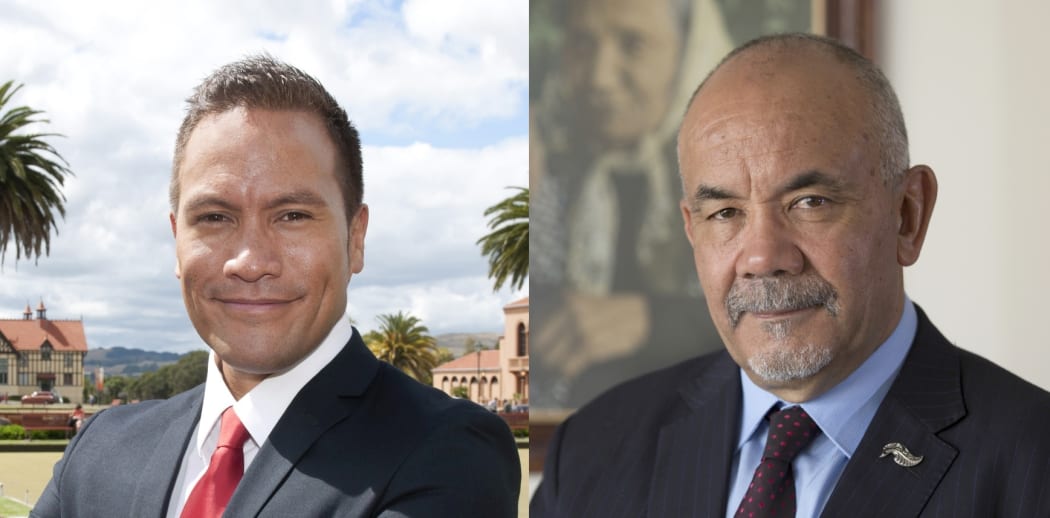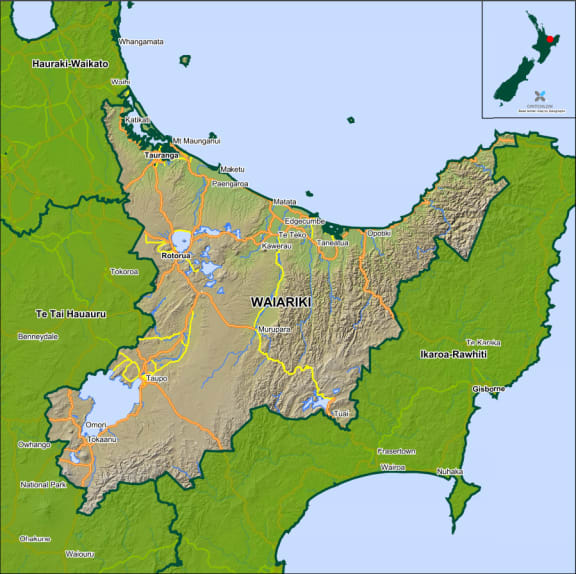
Te Ururoa Flavell, Tamati Coffey Photo: RNZ
“When you’ve got a school that doesn’t have to actually teach the curriculum, that doesn’t have to have qualified teachers, alarm bells should be going off."
Candidates for the Māori seat of Waiariki discuss regional development, water ownership, Treaty Settlements and the support the Māori Party has given to a National government.
While he is not prepared to be drawn on whether there should be a change of government, sitting Waiariki MP and Māori party co-leader Te Ururoa Flavell stoutly defends his party’s relationship with the National government.
“We have for the last nine years,” he says, “been invited to be with the National Party. They have never needed us. Never ever.”
The party consulted its members, who advised that it was far better to co-operate and take whatever advances are possible than languish in Opposition.
According to Flavell, the relationship accord allows the Māori Party to achieve a number of things: “One, to support a budget. Two, to vote against the government.”

Photo: House of Representatives
As a result, the party has voted with the government 93% of the time. But he points out that Labour also has done the same 86% of the time. “Everybody votes with the government. That’s how it works.”
The third part of the deal, says Flavell, “is that we are able to get gains. $400 million for Māoridom, with two members of Parliament, across the board in housing, whanau ora, economic development. $3 billion for the last nine years.”
And he predicts that if it were in a position to take power after the election, Labour would have to invite the party in as well. Either way, he is confident, it will retain a place at the table.
When the accommodations and compromises required to wield power are examined, Labour also has questions to answer, according to Wena Harawira.
Noting that it is Labour policy is to abolish charter schools, she asks Labour candidate Tamati Coffey if, now that Willie Jackson (a charter school supporter) has joined the Labour team, “Will it tweak its policy, and leave them be?”
Declining to give a definite answer, Coffey focuses instead on an aspect of charter school operation – what Labour perceives as excessive funding going to what he calls "these kinds of experimental schools".
“When you’ve got a school that doesn’t have to actually teach the curriculum, that doesn’t have to have qualified teachers, alarm bells should be going off. And that’s exactly what’s happening under the charter school model. If some charter schools are achieving results for our kids, then, of course, we should be supporting them. But part of that deal is that they need to have qualified teachers in there. And there needs to be some sort of review system to ensure what they are teaching is good. Currently, under the charter school model, that doesn’t have to happen.”

Chaired by Wena Harawira.
This programme recorded at Te Manuka Tutahi Marae in Whakatane was produced by Te Whakaruruhau o Ngā Reo Irirangi Māori and supported by Te Māngai Paho and the Māori Media Network.

